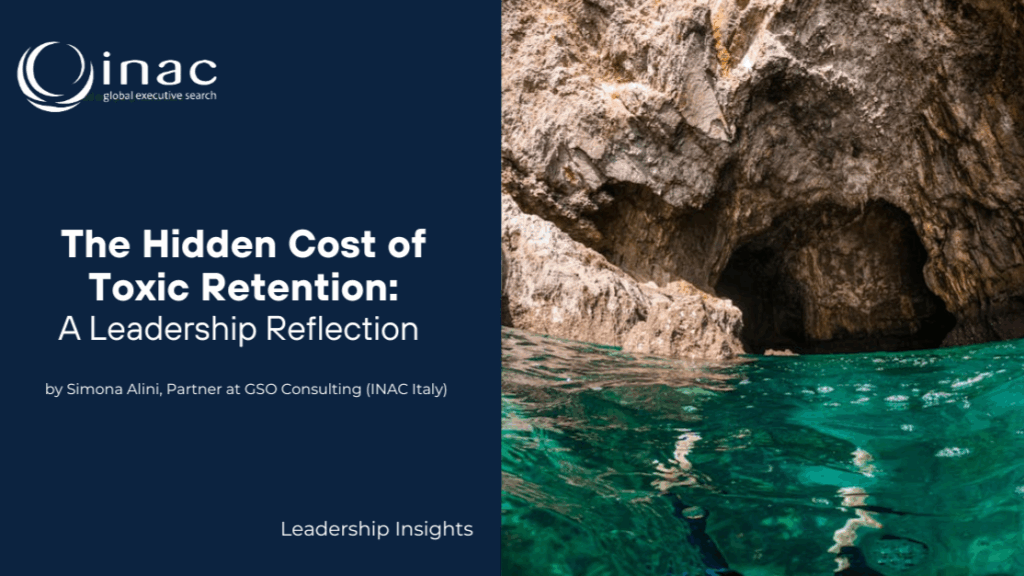
As a Leadership Coach, I often see organizations dedicate enormous energy to attracting new leaders, yet hesitate when it comes to making the tougher call: letting someone go.
Here’s the reality. Companies rarely lose ground because of who leaves. More often, they lose it because of who stays long after their contribution has ended.
I’ve witnessed this in executive teams, in boards, and even within smaller departments: someone whose time of true impact has passed still occupies a seat. Why? Not because they are still the right fit, but because removing them feels complicated, disruptive, or politically risky.
This is what I call toxic retention.
We rationalize it with phrases like:
If we look closely, these aren’t strategies, they are fears … and fear-driven decisions rarely safeguard a business; they slowly undermine it. The damage starts quietly: stalled innovation, diluted culture, and the subtle message to high performers that mediocrity is acceptable.
The paradox is striking: organizations will spend millions to attract new talent, yet underestimate the invisible cost of keeping someone who no longer aligns with the future, and from what I’ve seen, that cost only grows. The longer you delay, the more opportunities are blocked, and the harder the eventual change becomes.
Here’s the hardest truth: doing the right thing doesn’t always feel like progress in the moment. Letting go of someone with history, influence, or even partial results is painful. But leadership is not about avoiding discomfort, it’s about facing it with clarity and conviction.
That’s why, in coaching, I often ask leaders a simple but powerful question:
“Does this person still embody the future of your business?”
When organizations are courageous enough to answer honestly and act, the shift is immediate. The moment the “untouchable” person departs, teams breathe again, energy returns, and those who had been quietly waiting to contribute finally step forward.
So I leave you with this reflection:
Who in your organization are you retaining out of fear, rather than conviction?
The answer may feel uncomfortable, but it is also a compass for your future. True leadership is not only about choosing who joins the journey, it’s also about recognizing who no longer belongs on the path ahead … and sometimes, the most strategic and transformative act of leadership is the courage to let go.
________________________________

Simona Alini, Partner at GSO Consulting (INAC Italy)
Simona has over 30 years of experience in international industrial contexts (tires, publishing, food, and consulting), navigating diverse phases and economic cycles with significant business impact. She has held senior HR roles in Italy and abroad, covering all areas of the human resources function.
She is a PCC ICF Coach, ICF Certified Trainer, and holds international certifications in Leadership, Authority and Change from the Tavistock Institute in London and OFEK in Israel. Simona has led Leadership, Team, and Individual Coaching projects for national and international organizations, including shadow coaching and diversity & inclusion programs focused on gender and generational perspectives.
Her career includes working with executives and senior leaders from companies such as Mediobanca, Prysmian, Generali, Nestlé, Metlife, Symrise, Fiamm, Koeliker, Sanofi, ISS Facility Management, V-Nova, and RCS MediaGroup, as well as leaders in the non-profit sector.